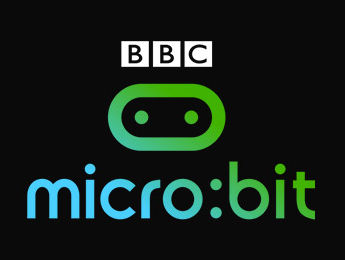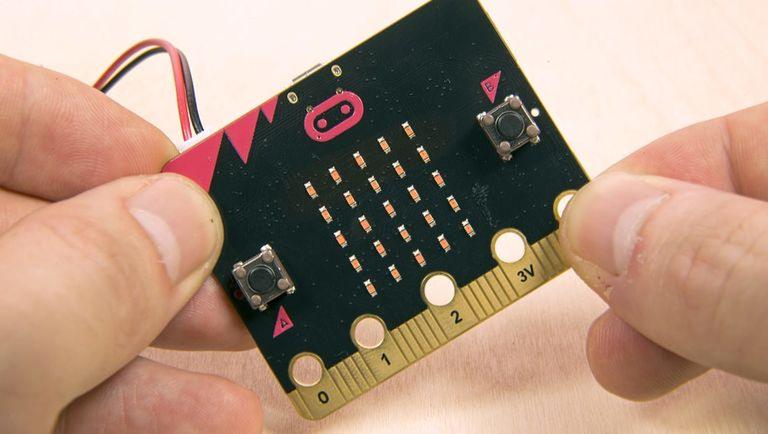| BBC Micro Retrospective |
| Written by Harry Fairhad | |||
| Sunday, 04 December 2016 | |||
|
The BBC Micro was released on December 1, 1981. Nicknamed the Beeb over 1.5 million were sold and it inspired a generation of programmers and is still has dedicated community of retrocomputing enthusiasts. Will the same be true of the latest venture, the BBC micro:bit? The BBC Micro belonged to a special era - that of the home computer - and had a special place. With backing from the British Broadcasting Corporation and government subsidies it found its way into around 80% of schools in the UK, accounting for 85% of computers in the UKs schools in the mid 1980s. The BBC started its Computer Literacy Project in the early 80's. According to Wikipedia: The project was initiated partly in response to an ITV documentary series The Mighty Micro, in which Dr Christopher Evans of the UK's National Physical Laboratory predicted the coming microcomputer revolution and its effect on the economy, industry, and lifestyle of the United Kingdom. Wikipedia goes on to explain how the BBC wanted to commission a custom microcomputer and drew up an ambitious specification which it discussed with several companies, including Sinclair Research and Dragon Data, see more about both of these in UK Micros of the 1980s. The contract was awarded to Acorn Computers and its Proton, the successor to the already successful Atom which used a 6502 processor, became the BBC Micro. It was relatively expensive. The Model B at almost £400, was the equivalent of £1,550 (around $2,000) in today's money. Even so it sold 1.5 million units - way more than the 12,000 expected. In this video from the Open University, the Beeb's designer Chris Turner, discusses the attitude prevalent in the 1980s that you had to learn about computers to say ahead.
In 2010 the Bletchley Park-based National Museum of Computing (TNMOC) opened an educational facility where today's students can experience using BBC BASIC which operates at a speed (2MHz) that is a factor of thirty-two thousand times slower than today's PCs. If you want the BBC Micro experience there are several emulators available, including jsbeeb, an open source one in JavaScript from Matt Godbolt, which we reported on last year. The Beeb made a lasting impact. As an 8-bit machine it was the right technology for the time and with a TV program dedicated to showing people how to use it it sparked the imagination of the school pupils who were exposed to it. As well as playing pre-packaged games, kids were keen to write their own programs using BBC BASIC. When the BBC announced the micro:bit in July 2015 as a computing device to be given away to 1 million school pupils there was the prospect of history being repeated. That was definitely part of the plan. Radio and TV programs were part of the grand design and the BBC lined up 29 partners including ARM, the successor to Acorn, and Microsoft, to create hardware, software and a website, to re-invigorate the idea of hands-on computing. The chosen recipients were Year 7 pupils (age around 11 years old) but sadly bugs in the design delayed distribution from the beginning of the school year (September 2015) until late March 2016.
There was a flurry of activity on the micro:bits education-only website once the devices finally made it into the classroom with 2 million projects downloaded onto them during the next six months. Here at I Programmer we dusted off a game written for the BBC Micro and showed how to port it to the micro:bit 5x5 led display in five different programming environments, the most popular of which proved to by Micro Python. But somehow I don't think people will be looking back to 2016 in 35 years time to talk about how the micro:bit was the impetus for them getting into coding IoT - which is what it should be doing. Our guess is that many of them are sitting in cupboards at the back of classrooms. The idea that they were to be given out to the pupils doesn't seem to have been universally applied. The micro:bit is an interesting device. It is physically small yet powerful and with an accelerometer and magnetometer capable of performing various tricks that could capture the imagination. But sadly so far it hasn't done so in the UK.
It may be that it will be better received elsewhere and now it has available worldwide, and no longer with an age restriction, it may discover its niche. Speaking at the launch of the Micro:bit Educational Foundation, its director Zach Shelby, former Director of Technology for Internet of Things at ARM said: "Our goal is to go out and reach 100 million people with Micro Bit, and by reach I mean affect their lives with the technology." The current device is being rolled out in Europe before a new version becomes available in the USA and China. While the Beeb relied on its BBC affiliation the BBC is already distancing itself from the micro:bit. However it can be argued that it was the quality of Acorn's hardware that led to the success of the BBC Micro and Arm, which is well regarded for chip design, can indeed emulate the success of its predecessor.
More InformationRelated ArticlesBBC micro:bit Your Next Computer? The BBC Micro:bit Is An Mbed Device In C/C++ Teach Code In School - Before It's Too Late! BBC Micro:bit Now On Sale and Shipping Commando Jump Game For The Micro:bit In Python Micro:bit IoT In C (I/O Press) To be informed about new articles on I Programmer, sign up for our weekly newsletter, subscribe to the RSS feed and follow us on Twitter, Facebook or Linkedin.
Comments
or email your comment to: comments@i-programmer.info <ASIN:1871962455> |
|||
| Last Updated ( Sunday, 09 October 2022 ) |





